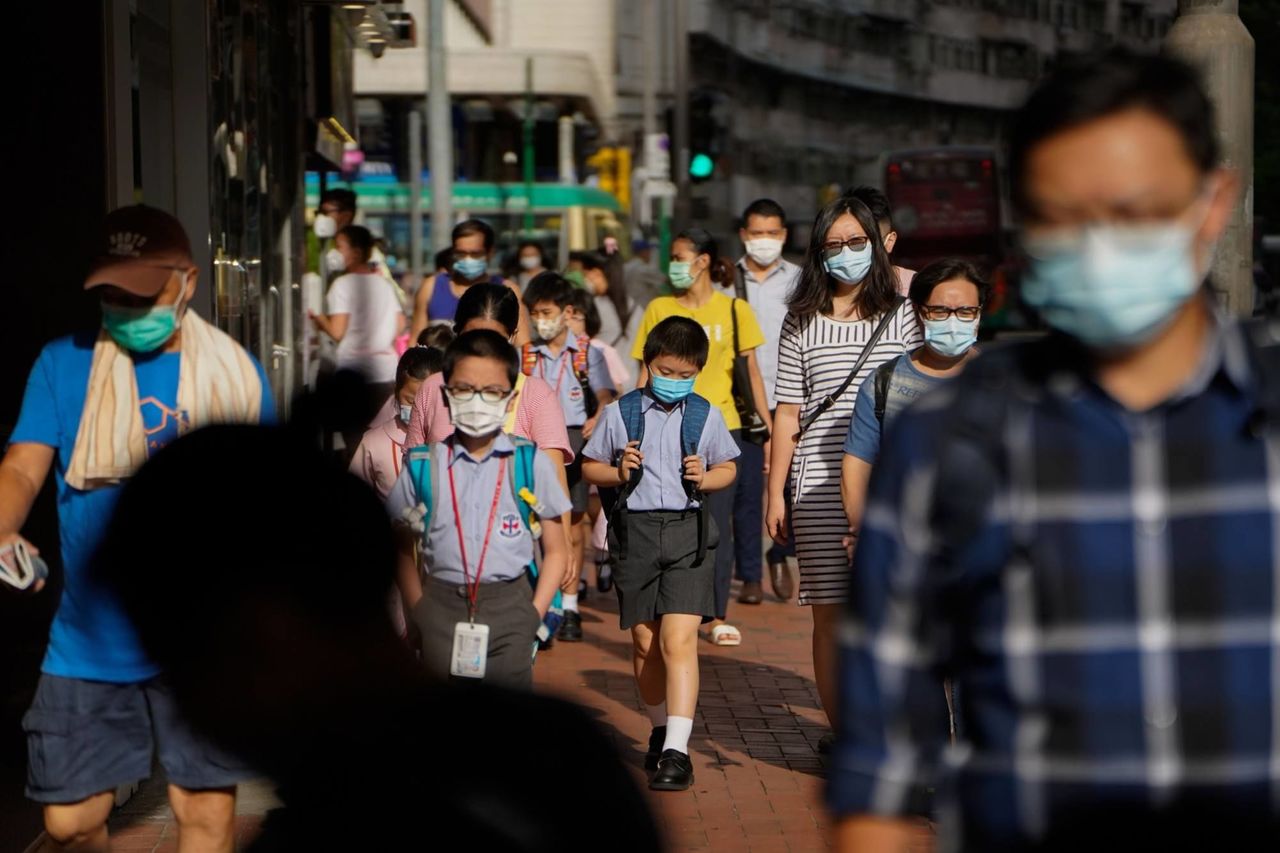Hong Kong News

More money alone won’t help Hong Kong improve online learning
Over the past two years, social unrest and the Covid-19 pandemic have caused interruptions to in-person teaching and learning in Hong Kong.
While these disruptions have created opportunities for the development of education technology and innovation in modes of teaching, educators are also concerned about the impact of school suspension on children’s growth.
Classrooms offer a space for children to acquire knowledge, learn how to form relationships, and develop a wide array of skills from a very young age.
Would the lack of the social, spatial and temporal structure in school harm children’s learning and growth? Could educational technology offer solutions to make up for the lack of contact hours?
The Education Bureau’s Fourth Strategy on Information Technology in Education, published in August 2015, aimed to leverage information technology to nurture self-directed lifelong learning and foster whole-person development. More than five years later, the education and technology landscape has changed significantly.
The market for global education technology and smart classrooms grew from US$43.27 billion in 2015 to US$89.49 billion in 2020 and is expected to have a compound annual growth rate of 19.9 per cent from 2021 to 2028.
As restrictions on in-person gatherings persist, educators and policymakers have had to reconsider the role of technology in education. During the pandemic, the use of video-conferencing interfaces has become a new norm in education.
With the slogan “suspending classes without suspending learning”, the Education Bureau has promoted e-learning and digital access.
Embracing technology is a no-brainer when Covid-19 has left educators, students and parents with no other choice.
The more critical question is how technology ought to be used, when video-conferencing interfaces, digital classroom management systems, and interactive applications become unavoidable.
With data from the 2018 Programme for International Student Assessment (PISA) results, McKinsey finds that better academic results usually occur when teachers lead and guide students on the use of electronic devices in the classroom, instead of leaving students on their own.
The necessity of teachers’ guidance and pedagogical intention in using technology is echoed by stakeholders we met during our research.
“Benefits of distance learning are skewed towards older children,” Benjamin Keeling, principal of Shrewsbury International School Hong Kong, observes.
“Young students need adult support, and we have adopted multi-mode solutions to help them learn and grow.”
 Children wearing protective masks walk along a sidewalk in Hong Kong on
July 10, when the government ordered schools closed due to a rise in
Covid-19 cases.
Children wearing protective masks walk along a sidewalk in Hong Kong on
July 10, when the government ordered schools closed due to a rise in
Covid-19 cases.
Online Zoom lessons at Shrewsbury are limited to small groups of no more than eight children, accompanied by two teachers who guide them in interacting with the group and ensure that every child is engaged.
Even before the pandemic, technology investment and the pedagogical development of technological use was already under way. As a litmus test, we ask ourselves: will this technology make engagement better?
In face-to-face lessons, children are often instructed to share electronic devices; while at home and interacting digitally, they are encouraged to engage socially with their peers through specifically designed activities.
However, not every school is able to guarantee small-group tuition or has comparable expertise in investing in education technology. While some schools have developed much experience in teaching with technology in recent years, others lag behind.
Within the HK$105 million (US$13.5 million) earmarked in 2015 for the Education Bureau to implement its strategy on education technology, around HK$90 million, or 86 per cent of the total, has been disbursed just for public schools to acquire mobile devices, leaving little for digital training of teachers, pedagogical research and curriculum development.
According to the Audit Commission’s report in 2018, of the 896 schools inspected, 517 (57.7 per cent) have not fully used the Composite Information Technology Grant allocated to them in the five years between the 2012-13 and the 2016-17 school years, including 131 schools (14.6 per cent) with unused funds, representing more than 20 per cent of the total allocation.
As digital technology becomes ubiquitous, the government must define clearer objectives for IT education and devise a well-elaborated strategic plan to help schools and educators implement such education.
To help teachers manage their workload, the government should support schools in enhancing and digitising their administrative systems and ensure that all teachers can easily access opportunities to boost their digital skills through paid leave or other support schemes.
Mere funding distribution is no longer sufficient to support our future generation. The government must chart the direction, guide schools in investing in available technologies, incentivise teachers to upskill themselves, and prepare young people to become digitally literate, competitive and responsible citizens of the future.











